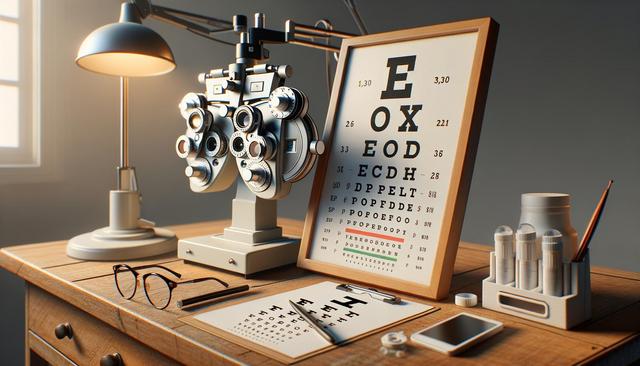Why Regular Eye Exams Matter
Scheduling a regular eye exam is not just about updating your glasses or contact lens prescription. It’s a critical part of maintaining overall eye health and detecting early signs of conditions that could affect your vision permanently. A routine Vision Checkup can identify issues like cataracts, glaucoma, and macular degeneration before they cause noticeable symptoms. Early detection often leads to more effective treatment and better long-term outcomes.
In addition to assessing your visual acuity, an Optometry Exam includes examining the internal and external structures of your eyes. This can reveal signs of systemic health issues such as diabetes and hypertension. Catching these conditions early through an eye test may even prompt medical follow-ups that benefit your general health.
So whether you’re experiencing changes in your vision or feel everything is fine, regular eye exams are a proactive way to protect your eyesight now and in the future.
What to Expect During an Eye Exam
Understanding what happens during an Eye Test can help reduce anxiety and ensure you’re well-prepared for the visit. A comprehensive Eye Care appointment typically includes several assessments designed to evaluate both vision and ocular health. Your eye care provider may perform the following:
- Visual acuity test to measure how clearly you see at different distances
- Refraction test to determine your exact prescription for glasses or lenses
- Slit-lamp examination to view the structures at the front of your eye
- Tonometry to measure eye pressure, which is crucial for detecting glaucoma
- Dilation, allowing a better view of the retina and optic nerve
These procedures are painless and usually completed within an hour. Your optometrist will discuss the results with you and recommend any necessary treatments or lifestyle changes to maintain optimal Eye Health.
How Often Should You Get an Eye Exam?
The frequency of your Vision Checkup depends on several factors, including age, risk level, and whether you currently use corrective lenses. As a general guideline:
- Children should have their first eye exam at six months, another at age three, and before starting school
- Adults aged 18 to 60 should have an eye exam at least every two years
- Individuals over 60, or those with risk factors like diabetes or a family history of eye conditions, may need annual exams
If you wear glasses or contact lenses, your optometrist might recommend more frequent checkups to ensure your prescription remains accurate. Also, any sudden changes in vision, eye pain, or visual disturbances warrant a prompt Optometry Exam regardless of your last appointment.
Benefits of Early Detection Through Eye Exams
One of the key advantages of routine Eye Tests is the early detection of eye diseases that often develop without symptoms. Conditions such as glaucoma and diabetic retinopathy can cause irreversible damage before you even notice a change in vision. Regular exams allow eye care professionals to identify these issues in their earliest stages and begin treatment immediately.
Aside from disease management, early detection also helps in:
- Preventing vision loss
- Reducing the need for complex procedures
- Improving quality of life through better visual function
- Identifying other health concerns early, like high blood pressure or cholesterol
Investing in your Eye Care through regular exams can have a significant impact on your overall well-being, helping you maintain independence and continue enjoying your daily activities without visual limitations.
Tips for Maintaining Eye Health Between Exams
While regular exams are essential, daily habits also play a major role in preserving your Eye Health. A few practical steps can help support your vision and overall eye function between appointments. These include:
- Wearing sunglasses that block UV rays
- Taking regular breaks when using screens to reduce eye strain
- Maintaining a balanced diet rich in vitamins A, C, and E
- Staying hydrated to support tear production
- Not smoking, as it increases the risk of many eye conditions
Additionally, practicing good hygiene with contact lenses and not ignoring any changes in your vision are important aspects of Eye Care. If you experience symptoms like blurred vision, floaters, or eye discomfort, scheduling an Optometry Exam promptly ensures any issues are addressed before they worsen.
Conclusion: Prioritize Your Vision with Regular Eye Exams
Routine eye exams are a simple yet vital part of maintaining good health. Whether you’re updating your prescription, managing an existing condition, or checking for early signs of disease, a comprehensive Eye Test offers valuable insights into your visual and overall health. By making Vision Checkups a regular habit, you’re taking an active step toward preserving your sight and catching problems before they become serious. Eye health affects every aspect of daily life, and prioritizing it ensures that your world remains clear and bright for years to come.




Leave a Reply